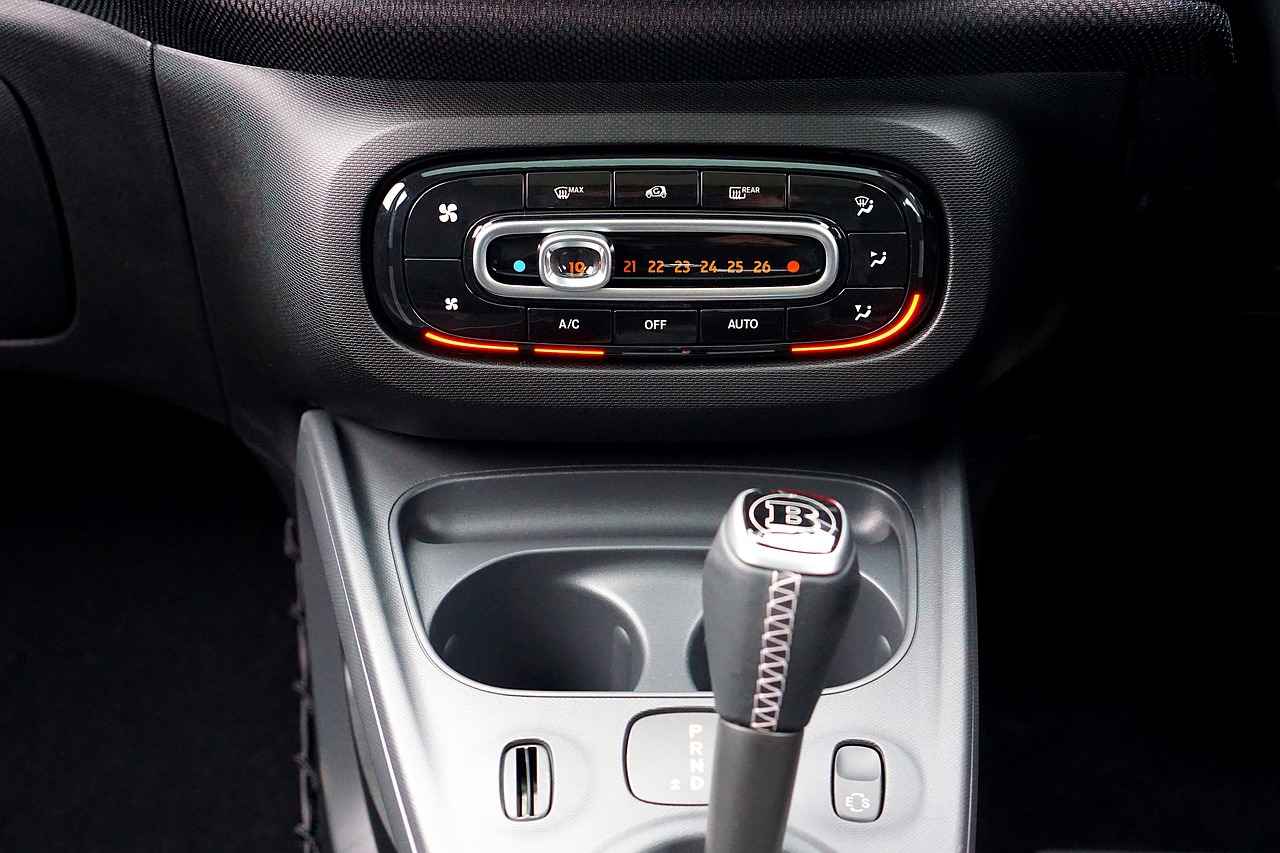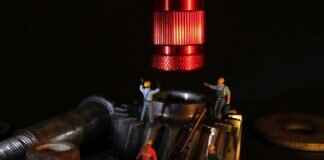The A/C compressor is a vital component of the air conditioning system in the 2004 Honda Accord. It plays a crucial role in ensuring that the cabin remains cool and comfortable, especially during hot weather. Understanding its functionality, signs of failure, and replacement options is essential for both vehicle owners and mechanics.
The A/C compressor is responsible for compressing the refrigerant and circulating it through the air conditioning system. This process is essential for cooling the air that enters the cabin. Without a functioning compressor, the A/C system cannot operate effectively, leading to discomfort for passengers.
Recognizing the symptoms of a malfunctioning A/C compressor can save you time and money. Common signs include:
- Unusual noises such as clunking or grinding
- Reduced cooling efficiency
- Visible refrigerant leaks
- Increased energy consumption
The functioning of the A/C compressor involves several steps. It compresses the refrigerant, raising its temperature and pressure. The high-pressure refrigerant then moves to the condenser, where it cools down and transforms into a liquid state, ready to absorb heat from the cabin air.
Several factors can lead to A/C compressor failure in a 2004 Honda Accord. These include:
- Lack of lubrication due to low refrigerant levels
- Contamination from debris or moisture
- Electrical issues that disrupt the compressor’s functionality
Proper diagnosis is crucial for resolving A/C issues. Techniques include:
- Checking refrigerant levels with a gauge
- Inspecting electrical connections for wear or damage
- Listening for unusual sounds during operation
When it comes to replacing your A/C compressor, you have various options:
- OEM parts: Original Equipment Manufacturer parts ensure compatibility and reliability.
- Aftermarket units: Often more affordable, these parts can vary in quality.
- Remanufactured compressors: These are refurbished units that can provide a cost-effective solution.
Replacing the A/C compressor can be a manageable task for experienced DIYers. Here’s a brief guide:
1. Gather necessary tools: wrenches, screwdrivers, refrigerant recovery machine.2. Disconnect the battery and recover refrigerant.3. Remove the old compressor and install the new one.4. Reconnect all components and recharge the system.5. Test the A/C system for proper operation.
If you’re not comfortable with DIY repairs, professional services offer expertise, ensuring the job is done correctly. Hiring a specialist can provide warranty coverage and peace of mind, although it may come at a higher cost.
Regular maintenance can extend the life of your A/C compressor. Essential practices include:
- Routine refrigerant checks
- System cleaning to prevent debris buildup
- Seasonal inspections to ensure optimal performance
Understanding the cost involved in replacing the A/C compressor is crucial for budgeting. Typical costs include:
- Parts: $300 – $600
- Labor: $100 – $200
Addressing common queries helps clarify uncertainties. Topics include:
- What is the average lifespan of an A/C compressor?
- How can I maintain my A/C system?
- What are common troubleshooting tips for A/C issues?
Finding the right supplier for A/C compressors is vital. Reputable options include:
- Online retailers like Amazon and RockAuto
- Local auto parts stores such as AutoZone and O’Reilly
- Dealerships for OEM parts

What is an A/C Compressor?
The A/C compressor is a vital component of your vehicle’s air conditioning system, particularly in models like the 2004 Honda Accord. It serves as the heart of the cooling process, compressing refrigerant and facilitating its circulation throughout the system. This process is essential for maintaining a comfortable cabin temperature, especially during the hot summer months. Understanding the role of the A/C compressor can help vehicle owners appreciate its importance and recognize potential issues that may arise.
When the A/C system is activated, the compressor draws in low-pressure refrigerant gas from the evaporator. It then compresses this gas, raising its pressure and temperature, and pushes it into the condenser. Here, the refrigerant releases heat and transforms into a liquid state. This liquid refrigerant then travels to the expansion valve, where it undergoes a pressure drop, allowing it to evaporate and absorb heat from the cabin air, thus cooling it down.
The A/C compressor operates using a belt connected to the engine, which powers it. This connection means that if the engine is running, the compressor is too, making it crucial for the compressor to function efficiently to avoid unnecessary strain on the engine. When the compressor fails, it can lead to a series of problems, including reduced cooling efficiency and potential damage to other components of the air conditioning system.
Recognizing the signs of a failing A/C compressor is essential for timely repairs. Common symptoms include:
- Unusual Noises: Grinding or squealing sounds can indicate internal damage.
- Reduced Cooling: If the air conditioning is not as cold as it used to be, it may signal a compressor issue.
- Visible Leaks: Refrigerant leaks around the compressor can lead to system failure.
Understanding how the A/C compressor works is not just for mechanics; it’s beneficial for all vehicle owners. Regular maintenance, including checking refrigerant levels and ensuring proper lubrication, can extend the life of the compressor. If issues are detected early, repairs can often be made before a complete replacement is necessary.
In summary, the A/C compressor is an essential part of your vehicle’s air conditioning system, responsible for compressing and circulating refrigerant to ensure a cool and comfortable driving experience. By recognizing the signs of failure and understanding its operation, vehicle owners can better manage their car’s air conditioning system and ensure its longevity.

Signs of a Failing A/C Compressor
When it comes to your vehicle’s comfort, the air conditioning (A/C) system plays a vital role, especially in warmer climates. Among its key components is the A/C compressor, which is responsible for circulating refrigerant and ensuring that your cabin stays cool. However, like any mechanical part, the A/C compressor can fail over time. Recognizing the can save you both time and money, allowing you to address issues before they escalate.
- Unusual Noises: If you hear strange sounds such as grinding, squealing, or clicking when the A/C is running, this could indicate a failing compressor. These noises often suggest internal wear or damage.
- Reduced Cooling Efficiency: One of the most noticeable signs of a malfunctioning A/C compressor is a decrease in cooling performance. If your vehicle’s A/C is blowing warm air or not cooling as effectively as it used to, the compressor may not be functioning properly.
- Visible Leaks: Inspect the area around the compressor for any signs of refrigerant leaks. Oil spots or puddles under your vehicle can indicate a seal failure or a crack in the compressor itself.
- Frequent Cycling: If you notice that your A/C system frequently cycles on and off, this could signal that the compressor is struggling to maintain the appropriate pressure.
- Electrical Issues: A malfunctioning compressor can sometimes lead to electrical problems, including blown fuses or issues with the A/C control module.
Ignoring the signs of a failing A/C compressor can lead to more significant problems down the road. Not only can a malfunctioning compressor affect your vehicle’s overall cooling system, but it can also lead to costly repairs if left unchecked. The longer you wait, the more likely you are to incur additional damages, such as a complete compressor failure or damage to other components within the A/C system.
If you notice any of the symptoms mentioned above, it’s crucial to take action promptly. Start by checking the refrigerant levels; low refrigerant can sometimes mimic compressor issues. If levels are normal, consider having a professional mechanic inspect the system to diagnose the problem accurately. A trained technician can perform tests to determine if the compressor is indeed the issue or if another component is causing the malfunction.
While some experienced DIY enthusiasts may attempt to replace a failing A/C compressor themselves, it can be a complicated task that requires specialized tools and knowledge of the vehicle’s A/C system. If you’re not confident in your abilities, it’s advisable to seek professional help to ensure the job is done correctly.
When it comes time to replace a failing A/C compressor, you have several options. You can choose from OEM (Original Equipment Manufacturer) parts, which are made by the vehicle’s manufacturer, or opt for aftermarket compressors that may offer cost savings. Additionally, remanufactured compressors can be a budget-friendly alternative that still provides reliable performance.
In conclusion, being aware of the signs of a failing A/C compressor is essential for maintaining your vehicle’s comfort and avoiding costly repairs. Regular inspections and prompt action can help ensure your A/C system operates efficiently for years to come.

How Does the A/C Compressor Work?
The A/C compressor is a vital component of your vehicle’s air conditioning system, particularly in the 2004 Honda Accord. Understanding how the A/C compressor works is essential for diagnosing issues and performing effective maintenance. This article delves into the operational mechanics of the A/C compressor, outlining its role in the cooling cycle and the significance of proper functionality.
The A/C compressor’s primary function is to compress refrigerant and circulate it through the air conditioning system. This process is crucial for cooling the air that enters the cabin of the vehicle. Here’s a detailed breakdown of its operation:
- Refrigerant Intake: The cycle begins when low-pressure refrigerant gas enters the compressor from the evaporator. This gas is in a low-energy state and needs to be compressed to initiate the cooling process.
- Compression: Inside the compressor, the refrigerant is compressed using a mechanical pump. This process raises the temperature and pressure of the refrigerant, transforming it into a high-pressure gas. The efficiency of this compression is vital for the overall performance of the A/C system.
- Discharge of High-Pressure Gas: Once compressed, the high-pressure gas is discharged into the condenser. Here, it will be cooled down, transitioning into a liquid state as it releases heat to the outside air.
- Cooling Cycle Continuation: The liquid refrigerant then moves to the expansion valve, where it experiences a drop in pressure, allowing it to evaporate and absorb heat from the cabin air. This cycle continues as the refrigerant returns to the compressor to start the process again.
Understanding this cycle is critical for diagnosing potential issues with the A/C compressor. If the compressor fails to compress the refrigerant effectively, the entire cooling system can become inefficient, leading to poor cooling performance and increased wear on other components.
The A/C compressor is not just a component; it is the heart of the air conditioning system. Without it, the refrigerant cannot circulate, and the cooling cycle cannot occur. This can result in uncomfortable driving conditions during hot weather and can lead to further damage to the A/C system if not addressed promptly.
Several factors can impact the performance of the A/C compressor:
- Lack of Lubrication: The compressor relies on adequate lubrication to function smoothly. Insufficient oil can lead to increased friction and premature failure.
- Contamination: Dirt and debris can enter the system, causing blockages and damaging internal components.
- Electrical Issues: Problems with the electrical system, such as a blown fuse or faulty relay, can prevent the compressor from receiving power.
Regular maintenance and early detection of issues can help ensure that the A/C compressor operates efficiently, prolonging its lifespan and maintaining the comfort of your vehicle.
To keep your A/C compressor in optimal condition, consider the following maintenance tips:
- Perform regular checks on refrigerant levels to ensure they are within the manufacturer’s specifications.
- Inspect the A/C system for any visible leaks or signs of wear.
- Schedule professional inspections periodically to catch potential problems early.
By understanding the operational mechanics of the A/C compressor in your 2004 Honda Accord, you can better diagnose issues and perform necessary maintenance, ensuring a comfortable driving experience.

Common Causes of A/C Compressor Failure
The A/C compressor in your 2004 Honda Accord is essential for maintaining a comfortable cabin environment, especially during hot weather. However, several factors can lead to its failure, which can result in costly repairs and discomfort. Understanding these causes can help you take preventive measures and recognize issues early.
- Lack of Lubrication: One of the most common reasons for A/C compressor failure is insufficient lubrication. The compressor relies on oil for smooth operation. If the oil level is low, it can lead to increased friction, overheating, and eventual breakdown of the compressor. Regular maintenance checks can help ensure that the lubrication system is functioning correctly.
- Contamination: Contaminants such as dirt, moisture, and debris can enter the A/C system, causing serious damage. These contaminants can clog the system, leading to poor performance and compressor failure. It’s crucial to keep the A/C system clean and to replace the refrigerant according to the manufacturer’s recommendations.
- Electrical Issues: The A/C compressor is controlled by an electrical system that includes relays, fuses, and wiring. Any malfunction in these components can disrupt the compressor’s operation. For instance, a blown fuse or a faulty relay can prevent the compressor from turning on, leading to a lack of cooling. Regular inspections of the electrical system can help identify and rectify these issues before they escalate.
- Refrigerant Leaks: Low refrigerant levels often indicate a leak in the system. If the refrigerant escapes, the compressor has to work harder to maintain cooling, which can lead to overheating and failure. Regularly checking for leaks and ensuring the refrigerant is at the proper level is essential for the longevity of your A/C compressor.
- Age and Wear: Like any mechanical component, the A/C compressor has a finite lifespan. Over time, wear and tear can lead to diminished performance and eventual failure. Regular maintenance and timely replacement can help mitigate the effects of aging.
How to Prevent A/C Compressor Failure
To prolong the life of your A/C compressor and prevent costly repairs, consider the following maintenance tips:
- Regular System Checks: Schedule routine inspections of your A/C system to catch potential issues early. This includes checking refrigerant levels and inspecting for leaks.
- Keep the System Clean: Ensure that the A/C system is free from contaminants. This can involve changing the cabin air filter and flushing the system periodically.
- Monitor Performance: Pay attention to any changes in A/C performance, such as reduced cooling efficiency or unusual noises, as these can be early signs of compressor issues.
- Use Quality Parts: When replacing components, opt for high-quality parts that meet OEM specifications to ensure compatibility and reliability.
By understanding the common causes of A/C compressor failure and implementing preventive measures, you can enhance the performance and longevity of your 2004 Honda Accord’s air conditioning system. Regular maintenance and prompt attention to any issues can save you time and money in the long run.

How to Diagnose A/C Compressor Problems
Diagnosing A/C compressor problems is essential for maintaining the comfort of your vehicle. A properly functioning A/C system not only ensures a pleasant driving experience but also contributes to the overall health of your vehicle. Here, we will explore effective techniques for diagnosing issues related to the A/C compressor, enabling you to identify problems early and avoid costly repairs.
- Check Refrigerant Levels: One of the first steps in diagnosing A/C issues is to check the refrigerant levels. Insufficient refrigerant can lead to poor cooling performance. Use a pressure gauge to measure the levels and ensure they are within the manufacturer’s specifications.
- Inspect Electrical Connections: A malfunctioning A/C compressor may be due to faulty electrical connections. Inspect the wiring and connectors for signs of wear, corrosion, or loose connections. Ensure that the compressor is receiving adequate power to function properly.
- Listen for Unusual Sounds: During operation, pay attention to any strange noises coming from the A/C compressor. Sounds such as grinding, squealing, or rattling can indicate internal damage or mechanical failure. These sounds are often precursors to more significant issues.
- Examine the A/C Clutch: The A/C clutch engages and disengages the compressor. A malfunctioning clutch may not engage properly, leading to inadequate cooling. Check for signs of wear or damage on the clutch and ensure it operates smoothly.
- Check for Leaks: Leaks in the A/C system can severely impact performance. Inspect hoses, seals, and the compressor itself for signs of refrigerant leaks. Using a UV dye can help identify leaks that are not easily visible.
- Monitor Cabin Temperature: If the cabin temperature does not cool down as expected, it may indicate a compressor issue. Compare the temperature of the air coming from the vents with the ambient temperature to assess performance.
In addition to these techniques, utilizing diagnostic tools such as a multimeter and a refrigerant recovery machine can provide further insights into the health of your A/C compressor. If you find it challenging to diagnose the problem, consulting a professional mechanic can save time and ensure accurate repairs.
Proper diagnosis is crucial for resolving A/C compressor issues effectively. By following these steps, you can identify potential problems early and take the necessary actions to restore your vehicle’s air conditioning system to optimal performance.

Replacement Options for A/C Compressors
When it comes to maintaining the comfort of your vehicle, the A/C compressor plays a vital role in ensuring that your car’s air conditioning system operates efficiently. If you find yourself in need of a replacement, you have several options to consider. Each choice comes with its own set of benefits and cost implications, which can significantly affect your decision.
- OEM Parts: Original Equipment Manufacturer (OEM) parts are made by the same manufacturer that produced the original compressor in your vehicle. These parts are designed to fit perfectly and meet the same quality standards as the original. While they can be more expensive, they often come with warranties and assurances of reliability.
- Aftermarket Units: Aftermarket compressors are produced by third-party manufacturers. They can be more affordable than OEM parts and are available in a variety of options. However, quality can vary significantly, so it’s crucial to research the brand and read reviews before making a purchase.
- Remanufactured Compressors: Remanufactured compressors are rebuilt from used units and restored to a like-new condition. This option often strikes a balance between cost and quality. Remanufactured parts typically come with warranties, making them a reliable choice for budget-conscious consumers.
Choosing the right type of A/C compressor replacement depends on your specific needs and budget:
| Type | Advantages | Cost Consideration |
|---|---|---|
| OEM Parts | Guaranteed fit and quality, warranty included | Higher price point |
| Aftermarket Units | Variety of options, often lower cost | Variable quality, potential for lower longevity |
| Remanufactured Compressors | Cost-effective, often reliable with warranty | Mid-range pricing |
When deciding which type of A/C compressor to purchase, consider the following factors:
- Budget: Determine how much you are willing to spend. While OEM parts may be pricier, they offer peace of mind.
- Vehicle Age: For older vehicles, aftermarket or remanufactured units may be more practical.
- Usage: If you drive your vehicle frequently or use it for long distances, investing in an OEM part could save you money in the long run by reducing the likelihood of further repairs.
In summary, understanding the various replacement options for A/C compressors is crucial for making an informed decision. Whether you opt for OEM, aftermarket, or remanufactured units, weighing the advantages and costs will help you select the best choice for your vehicle’s needs.

DIY A/C Compressor Replacement Guide
Replacing the A/C compressor in your vehicle can seem daunting, but for experienced DIYers, it can be a manageable task. This guide provides an in-depth look at the tools required, step-by-step instructions, and essential safety precautions to ensure a successful A/C compressor replacement.
- Socket Set: A comprehensive socket set will be necessary for removing bolts and securing the new compressor.
- Wrenches: Having various sizes of wrenches will help you access tight spaces.
- Refrigerant Recovery Machine: This tool is crucial for safely recovering refrigerant before compressor removal.
- Torque Wrench: To ensure bolts are tightened to the manufacturer’s specifications.
- Safety Gear: Always wear gloves and goggles to protect yourself from refrigerants and sharp components.
- Preparation: Begin by parking the vehicle on a flat surface and disconnecting the battery to avoid any electrical hazards.
- Recover Refrigerant: Use the refrigerant recovery machine to safely remove refrigerant from the system. This step is crucial for environmental safety.
- Remove Old Compressor: Disconnect the electrical connectors and hoses from the old compressor. Use your socket set to remove the mounting bolts.
- Install New Compressor: Position the new compressor in place, securing it with the bolts. Reattach the electrical connectors and hoses.
- Recharge the System: After installation, use the refrigerant machine to recharge the A/C system with the appropriate refrigerant.
- Test the System: Reconnect the battery and start the engine. Turn on the A/C to ensure it is functioning correctly.
Safety should always be your top priority. Here are some important precautions:
- Work in a well-ventilated area: This helps to avoid inhaling any harmful refrigerants.
- Wear protective equipment: Gloves and goggles are essential to protect against sharp parts and refrigerants.
- Follow manufacturer instructions: Always refer to your vehicle’s service manual for specific guidelines related to your model.
Even experienced DIYers can make mistakes. Here are some common pitfalls to avoid:
- Not recovering refrigerant properly: Failing to do this can lead to environmental hazards and legal issues.
- Neglecting to replace O-rings: Old O-rings can lead to leaks, so always replace them when installing a new compressor.
- Over-tightening bolts: This can damage the compressor or other components, leading to costly repairs.
By following this guide, you can confidently tackle the A/C compressor replacement in your vehicle. Whether you’re looking to save money or simply enjoy working on your car, taking the time to understand the process is invaluable. Remember to prioritize safety and accuracy for the best results.

Professional A/C Compressor Replacement Services
When it comes to maintaining your vehicle’s air conditioning system, the A/C compressor is a vital component that ensures optimal performance. If you’re facing issues with your A/C system, you might be considering whether to handle repairs yourself or hire a professional. This section delves into the advantages of seeking .
While DIY repairs can be tempting, especially for those who are handy with tools, there are significant benefits to hiring a professional. Here are some reasons to consider:
- Expertise and Experience: Professionals possess the training and experience necessary to diagnose and fix problems efficiently. They are familiar with the specific requirements of the 2004 Honda Accord, ensuring that the replacement is done correctly.
- Warranty Coverage: Many professional services offer warranties on their work. This means that if something goes wrong after the replacement, you have protection against additional costs.
- Time-Saving: A technician can often complete the replacement much faster than a DIY enthusiast. This is especially important if you rely on your vehicle daily.
- Access to Quality Parts: Professionals typically have access to high-quality OEM parts and can help you choose the best option for your budget and needs.
The cost of hiring a professional for A/C compressor replacement can vary significantly based on several factors:
- Labor Costs: Labor charges can differ based on the shop’s location and the technician’s expertise. On average, labor can range from $100 to $150 per hour.
- Parts Costs: The price of the A/C compressor itself can vary widely. OEM parts tend to be more expensive than aftermarket options, typically ranging from $300 to $700.
- Additional Services: Some shops may include additional services such as system flushing or refrigerant recharge, which can add to the overall cost.
When selecting a professional for your A/C compressor replacement, consider the following:
- Reputation: Look for reviews and testimonials from previous customers. A reputable service will have positive feedback and a history of satisfied clients.
- Certifications: Ensure that the technicians are certified and trained in automotive air conditioning systems.
- Estimates: Obtain multiple estimates to compare prices and services offered. This will help you find the best value for your needs.
Understanding what happens during the replacement can alleviate any concerns you may have:
- Inspection: The technician will first inspect the entire A/C system to identify any underlying issues.
- Removal: The faulty A/C compressor will be removed, and any necessary components will be replaced or repaired.
- Installation: The new compressor will be installed, and the system will be recharged with refrigerant.
- Testing: Finally, the technician will test the system to ensure it is functioning correctly.
In conclusion, while DIY repairs may save you money upfront, the benefits of hiring a professional for A/C compressor replacement far outweigh the risks. With their expertise, warranty coverage, and access to quality parts, you can ensure that your 2004 Honda Accord’s A/C system operates efficiently and reliably.

Maintaining Your A/C System for Longevity
Maintaining your A/C system is essential for ensuring its longevity and optimal performance. Regular maintenance not only enhances the efficiency of your A/C compressor but also contributes to a more comfortable driving experience in your 2004 Honda Accord. This section will delve into key maintenance practices that can significantly extend the lifespan of your A/C compressor.
Why is Regular Maintenance Important? A well-maintained A/C system can prevent costly repairs and replacements down the line. By performing routine checks and maintenance, you can identify potential issues before they escalate, saving you both time and money.
- Refrigerant Checks: One of the most critical aspects of A/C maintenance is monitoring the refrigerant levels. Low refrigerant can indicate a leak, which can lead to compressor damage if not addressed promptly. It’s advisable to have your refrigerant levels checked at least once a year.
- System Cleaning: Dust, debris, and contaminants can accumulate in your A/C system, hindering its performance. Regular cleaning of the condenser coils and the cabin air filter can improve airflow and efficiency. This practice also helps prevent unpleasant odors from developing inside your vehicle.
- Seasonal Inspections: Before the hot summer months, conduct a thorough inspection of your A/C system. This includes checking the compressor, hoses, and electrical connections. A professional technician can help identify any wear and tear that may need attention.
What Are the Benefits of Routine Maintenance? Implementing a regular maintenance schedule can lead to several benefits:
- Enhanced Efficiency: A well-maintained A/C system operates more efficiently, resulting in better cooling performance and reduced energy consumption.
- Extended Lifespan: Regular checks and servicing can significantly extend the life of your A/C compressor, allowing you to avoid premature replacements.
- Improved Air Quality: Keeping your system clean ensures that the air circulating in your vehicle is free from pollutants, providing a healthier environment for you and your passengers.
How Often Should You Perform Maintenance? Ideally, you should schedule maintenance for your A/C system at least twice a year—once before the summer season and once before winter. However, if you notice any signs of malfunction, such as strange noises or reduced cooling efficiency, it’s essential to seek professional help immediately.
Conclusion: By prioritizing regular maintenance practices such as refrigerant checks, system cleaning, and seasonal inspections, you can significantly enhance the performance and longevity of your A/C compressor. Not only will this lead to a more comfortable driving experience, but it will also save you money in the long run by preventing major repairs. Invest in your vehicle’s A/C system today to ensure it operates efficiently for years to come.

Cost of A/C Compressor Replacement for 2004 Honda Accord
When it comes to maintaining your vehicle, understanding the cost of replacing the A/C compressor in your 2004 Honda Accord is essential for effective budgeting. The A/C compressor is a vital component of your car’s air conditioning system, responsible for compressing refrigerant and ensuring that the cabin remains cool and comfortable, especially during hot weather.
The overall cost of replacing an A/C compressor can vary significantly based on several factors:
- Parts Quality: The choice between OEM (Original Equipment Manufacturer) parts and aftermarket options can affect the price. OEM parts tend to be more expensive but offer guaranteed compatibility and reliability.
- Labor Costs: Mechanic labor rates can vary widely depending on your location and the shop’s reputation. On average, labor can account for a substantial portion of the total cost.
- Additional Repairs: Sometimes, replacing the A/C compressor may require additional repairs, such as replacing the receiver-drier or flushing the A/C system, which can add to the overall expense.
The average cost to replace the A/C compressor in a 2004 Honda Accord typically ranges from $800 to $1,200. This estimate includes both parts and labor, but prices can fluctuate based on the factors mentioned above. Here’s a breakdown:
| Component | Estimated Cost |
|---|---|
| A/C Compressor (Parts) | $400 – $800 |
| Labor | $300 – $500 |
| Additional Parts (if needed) | $100 – $300 |
Knowing the costs involved in replacing your A/C compressor allows you to plan your vehicle maintenance budget more effectively. It also enables you to make informed decisions when selecting parts or choosing between DIY repairs and professional services. Moreover, being aware of potential additional costs can help you avoid unexpected expenses in the future.
Here are some tips to help you save on A/C compressor replacement:
- Shop Around: Get quotes from multiple repair shops to find the best price for labor.
- Consider Remanufactured Parts: Remanufactured compressors can be a cost-effective alternative to new parts.
- DIY Maintenance: Regular maintenance can prevent larger issues and extend the life of your A/C system, reducing the need for costly repairs.
In conclusion, understanding the cost of A/C compressor replacement for your 2004 Honda Accord is crucial for effective vehicle maintenance. By being informed about the factors that influence costs and exploring ways to save money, you can ensure that your vehicle’s air conditioning system remains efficient and reliable.

Frequently Asked Questions About A/C Compressors
Understanding the intricacies of A/C compressors can significantly enhance your experience as a vehicle owner. This section addresses some of the most common inquiries regarding A/C compressors, focusing on their lifespan, maintenance tips, and troubleshooting methods for prevalent issues.
- What is the average lifespan of an A/C compressor?
On average, an A/C compressor can last between 10 to 15 years or approximately 100,000 to 150,000 miles. However, this lifespan can vary based on factors such as driving conditions, maintenance practices, and the overall health of the vehicle’s air conditioning system. - How can I maintain my A/C compressor effectively?
Regular maintenance is crucial for prolonging the life of your A/C compressor. Here are some essential tips:- Schedule annual inspections to check refrigerant levels and system integrity.
- Keep the A/C system clean by removing debris from the condenser and ensuring proper airflow.
- Run the A/C system regularly, even in colder months, to keep the components lubricated.
- What are the common signs of A/C compressor problems?
It’s important to recognize the symptoms of a failing A/C compressor. Look out for:- Unusual noises, such as grinding or clunking sounds when the A/C is activated.
- A noticeable decrease in cooling efficiency or warm air blowing from the vents.
- Visible refrigerant leaks around the compressor unit.
- Can I troubleshoot A/C compressor issues myself?
Yes, some basic troubleshooting can be performed at home. Start by checking:- The fuse and relay associated with the A/C system.
- The refrigerant levels using a gauge to ensure they are within the recommended range.
- The electrical connections for any signs of corrosion or damage.
If issues persist, consulting a professional is recommended.
- When should I consider replacing my A/C compressor?
If your A/C compressor is exhibiting severe symptoms such as constant overheating, significant leaks, or failure to engage, it may be time for a replacement. Additionally, if repairs are frequent and costly, investing in a new compressor could be more economical in the long run.
By addressing these common questions, you can better navigate the complexities surrounding A/C compressors and ensure your vehicle’s air conditioning system operates efficiently. Proper maintenance and timely troubleshooting can save you both time and money, allowing for a comfortable driving experience regardless of the weather.

Where to Buy A/C Compressors for Your Honda Accord
Finding the right supplier for A/C compressors is essential for ensuring optimal performance and longevity of your vehicle’s air conditioning system. Whether you are a DIY enthusiast or prefer professional help, knowing where to purchase a quality compressor can save you time and money. Below, we explore various options for sourcing A/C compressors for your 2004 Honda Accord.
- Reputable Online Retailers: The internet offers a plethora of options for purchasing A/C compressors. Websites like Amazon, eBay, and specialized auto parts retailers such as AutoZone and RockAuto provide an extensive selection. When shopping online, ensure to check customer reviews and ratings to gauge the reliability of the supplier.
- Local Auto Parts Stores: Visiting local auto parts stores can be advantageous for those who prefer to see the product before purchasing. Stores like NAPA Auto Parts and O’Reilly Auto Parts often carry A/C compressors suitable for the Honda Accord. Additionally, local stores may offer knowledgeable staff who can assist you in selecting the right part.
- Dealership Options: While typically more expensive, purchasing from a Honda dealership guarantees that you will receive an OEM (Original Equipment Manufacturer) part. This can be crucial for maintaining the integrity of your vehicle. Dealerships often provide warranties on parts, which can offer peace of mind in case of future issues.
When choosing a supplier, consider the following factors:
- Price Comparison: Always compare prices across different platforms to ensure you are getting the best deal. Remember that the lowest price may not always equate to the best quality.
- Warranty and Return Policies: Check the warranty offered on the A/C compressor. A longer warranty period often indicates a higher quality product. Additionally, understanding the return policy can save you from potential hassles if the part is defective.
- Shipping and Delivery Times: If you opt for online shopping, take note of shipping costs and delivery timelines. Some retailers may offer free shipping, while others might charge extra, which can affect your overall budget.
In summary, the options for purchasing A/C compressors for your Honda Accord are diverse, ranging from online retailers to local auto parts stores and dealerships. Each option has its advantages and considerations, so evaluate your needs and preferences carefully. By sourcing your A/C compressor from a reputable supplier, you can ensure that your vehicle remains comfortable and functional throughout the hot months.
Frequently Asked Questions
- How long does an A/C compressor typically last?
The lifespan of an A/C compressor can vary, but generally, you can expect it to last between 10 to 15 years if properly maintained. Factors such as driving conditions and regular maintenance can significantly impact its longevity.
- What are the signs that my A/C compressor is failing?
Look out for unusual noises, a decrease in cooling efficiency, or any visible refrigerant leaks. If you notice any of these symptoms, it might be time to get your A/C compressor checked.
- Can I replace the A/C compressor myself?
Yes, if you’re handy and have the right tools, replacing the A/C compressor can be a DIY project. Just make sure to follow a detailed guide and take necessary safety precautions!
- What are the costs associated with replacing an A/C compressor?
The cost can range from $500 to $1,200, depending on whether you choose OEM, aftermarket, or remanufactured parts, along with labor costs if you opt for professional help.
- Where can I buy a replacement A/C compressor for my Honda Accord?
You can find A/C compressors at local auto parts stores, online retailers, or directly from Honda dealerships. Be sure to check reviews and warranty options before making a purchase!














